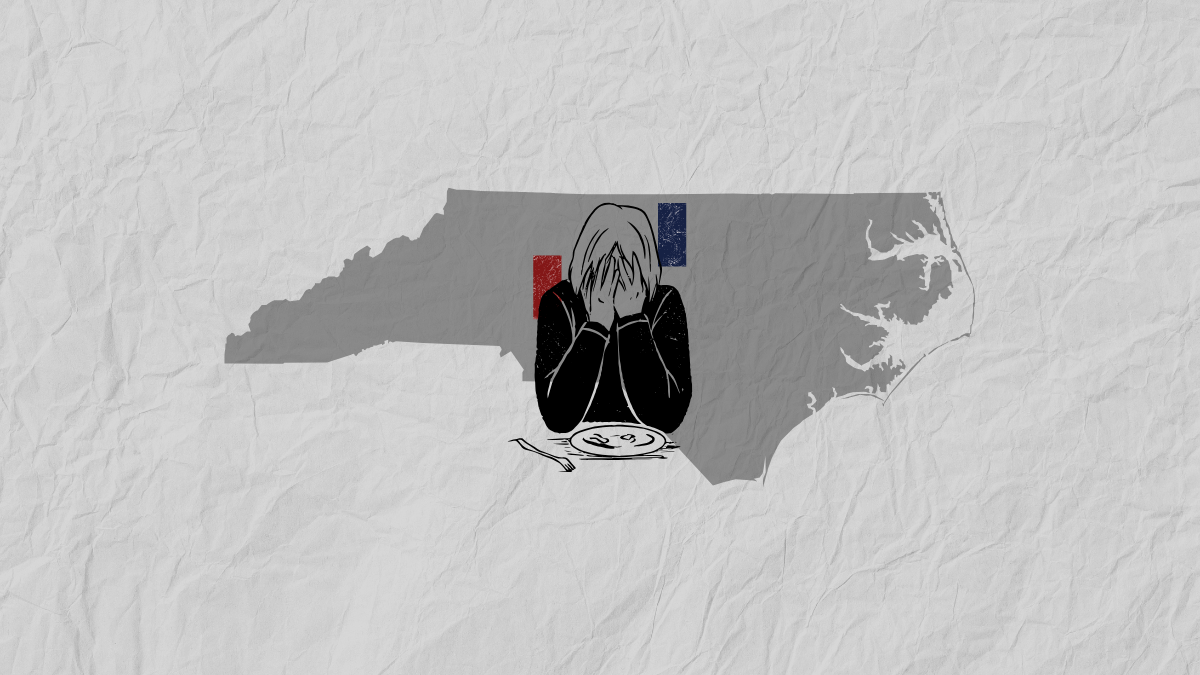North Carolina families are staring down a devastating blow if Congress passes Trump’s so-called “One Big Beautiful Bill,” which includes deep cuts to the Supplemental Nutrition Assistance Program (SNAP). Across the state, food banks, nonprofits, and community leaders are sounding the alarm.
Second Harvest Food Bank of Northwest North Carolina and Helping Hands Food Pantry in High Point are among the most trusted hunger relief organizations in the Triad. They are urging supporters to contact Senators Thom Tillis and Ted Budd and demand they stop these dangerous cuts.
“We rarely ask everyone connected to Second Harvest to raise their voices regarding governmental policy, but we are doing so now,” said Eric Aft, CEO of Second Harvest. The organization took the rare step of emailing donors directly to call for urgent action. “The threat to the well-being of our region’s families, local economies, and farmers is just too great.”
The numbers are sobering. According to the St. Louis Federal Reserve Bank, nearly one in five residents of Guilford County rely on SNAP to afford groceries. But the legislation would slash nearly $300 billion in federal food assistance and shift the burden onto states like North Carolina—without any guarantee that those states could cover the gap. If passed, it could mean millions more go hungry, especially in rural communities.
And it’s not just the food banks who are worried—it’s the people they serve. Steve Key, Executive Director of Helping Hands High Point, says his pantry has seen demand triple in just three years. “It’s not like they have an abundance of food already, and that we’re gonna start cutting things back that they’ve been dependent on just to make just to have some food in their house to be able to feed their family.”
Key and others dismiss the argument from House Speaker Mike Johnson, who claims the bill simply cracks down on fraud and strengthens the program. In reality, the legislation expands work requirements—forcing adults up to age 64 and some parents with school-age children to meet new work thresholds or lose benefits. It also severely limits states’ ability to waive work requirements in areas with high unemployment, despite the fact that many SNAP recipients already work low-wage jobs.
Justine Koksal of the Foodbank of the Albemarle says the bill would create an unsustainable burden on food banks. Her organization currently provides about 8 million meals a year across 15 counties. “If there were to be about a 10% cut to SNAP the food bank would have to provide upwards of 13 and a half million meals a year. For our food bank that’s not sustainable, it’s not possible” she said.
North Carolina already faces hunger at alarming levels, particularly in rural and low-income communities. The proposed cuts would mean fewer meals on the table, higher pressure on food banks, and devastating trade-offs for working families. Many food banks are already dipping into reserve funds and calling on private donors just to meet current demand—and they know worse is coming.
Meanwhile, the bill also removes key federal protections, capping benefits and requiring states to pick up up to 25% of SNAP costs. If passed, the bill would gut one of the most critical safety nets for more than 40 million Americans—and hundreds of thousands in North Carolina. It would force seniors, working parents, and low-wage workers to face impossible choices: food or rent, medicine or meals. And while President Trump aims to sign the bill by July 4, advocates warn that the vote in the Senate will be close—and that even one senator could make the difference.
That’s why food banks across the state are urging North Carolinians to raise their voices now. The time to act is before this crisis becomes a catastrophe.
Read more from WFMY.





